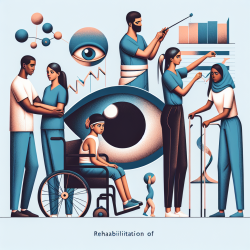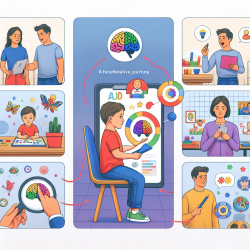Unlocking the Power of Parenting: Insights from Brazil's Early Intervention Programs
In the realm of speech-language pathology and child development, data-driven decisions are paramount. Recent research titled "Effects of Two Early Parenting Programmes on Child Aggression and Risk for Violence in Brazil: a Randomised Controlled Trial" sheds light on the impact of early parenting interventions in reducing child aggression and potential violence. This study, conducted in Brazil, provides valuable insights for practitioners aiming to improve outcomes for children through evidence-based strategies.
The Study: An Overview
The study evaluated two low-cost, group-based parenting programs: ACT: Raising Safe Kids and Dialogic Book-Sharing (DBS). These programs were implemented in city health and education services in southern Brazil, targeting 369 children with medium to high levels of aggression. The interventions aimed to reduce child aggression, improve parenting practices, and enhance child development.
Key Findings
- Neither ACT nor DBS significantly reduced child aggression, the primary outcome of the study.
- ACT was effective in reducing harsh parenting behavior immediately post-intervention, but the effects did not persist at the 8-month follow-up.
- DBS improved book-sharing practices and maternal sensitivity, showing sustained benefits in these areas.
- No significant benefits were observed for other parenting, child development, or stress outcomes.
Implications for Practitioners
While the study did not find significant reductions in child aggression, it highlights the potential of targeted parenting interventions to improve specific parenting practices. Practitioners can leverage these insights by:
- Focusing on enhancing specific parenting skills, such as book-sharing and sensitivity, which showed positive outcomes.
- Considering the integration of additional support mechanisms to sustain positive changes in parenting behavior.
- Encouraging further research to explore the long-term effects of such interventions on child development and aggression.
Conclusion
Effective early interventions in parenting can play a crucial role in shaping child development and reducing the risk of violence. Although the study found limited effects on child aggression, the improvements in parenting practices underscore the importance of targeted interventions. Practitioners are encouraged to delve deeper into the research and explore innovative ways to enhance the effectiveness of parenting programs in diverse settings.
To read the original research paper, please follow this link: Effects of Two Early Parenting Programmes on Child Aggression and Risk for Violence in Brazil: a Randomised Controlled Trial.










